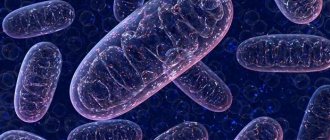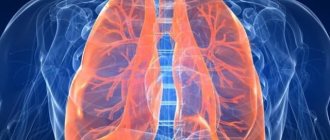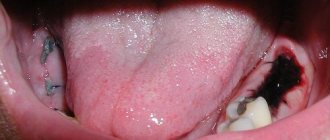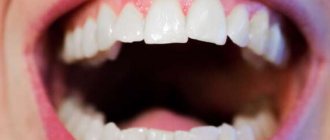Gastroesophageal reflux disease (GERD)
is a disease caused by repeated spontaneous reflux of stomach contents (and in some cases, duodenum) into the esophagus.
Our body is designed in such a way that movement must occur in only one direction: food from the esophagus must enter the stomach.
The reverse movement is prevented by a ring of muscle, the lower esophageal sphincter, which provides a barrier that prevents stomach contents from naturally flowing into the esophagus. The digestive process begins in the stomach. Gastric juice secreted to digest food contains aggressive hydrochloric acid. Once in the esophagus, where it is not intended to be located, the acid causes irritation of the mucous membrane, manifested as a burning sensation along the esophagus, which we call heartburn. Heartburn can occur even in a healthy person, but if reflux occurs quite often, irritation of the esophageal mucosa can cause inflammation.
Thus, isolated cases of heartburn are not a disease, but if irritation of the esophageal mucosa occurs often enough, GERD is diagnosed. In this case, endoscopic examination may not reveal mucosal erosion. This form of the disease is called endoscopically negative reflux disease.
.
It accounts for approximately 70% of cases. In 30% of cases, endoscopy reveals mucosal lesions. This form of the disease is called reflux esophagitis
.
Causes of GERD
Reflux (reflux of stomach contents into the esophagus) can occur for the following reasons:
decreased tone of the lower esophageal sphincter.
Sphincter weakness may result from:- consumption of caffeinated drinks, chocolate;
- smoking;
- alcohol abuse;
- hormonal changes during pregnancy;
taking certain medications;
- flatulence (which, in turn, can be a consequence of poor nutrition, gastrointestinal diseases, digestive disorders - dyspepsia);
pregnancy;
- hiatal hernia.
For the development of gastroesophageal reflux disease, not only the reflux itself is important, but also some other factors that contribute to the aggravation of the situation, for example:
- depressed state of the esophageal mucosa, in which it is unable to resist damage;
- impaired ability of the esophagus to cleanse itself. Normally, the esophagus should quickly be cleared of the stomach contents that have entered it - due to gravity and peristalsis, and the acidity of the environment should be eliminated by sodium bicarbonate, which is part of the saliva.
Factors that provoke reflux are:
- stress;
- eating too much food (overeating);
- eating foods that cause increased gas formation and other digestive disorders;
- physical activity after meals.
Symptoms of GERD
Acid from the stomach can enter the respiratory tract (this usually happens when lying down) and cause a sore throat, hoarseness, dry mouth, and cough. GERD can stimulate the development of bronchial asthma, chronic obstructive bronchitis, and aspiration pneumonia.
The constant presence of acidic contents in the esophagus leads to scarring of the mucous membrane of the lower part of the esophagus, as a result of which the lumen of the esophagus narrows (this complication of GERD is called peptic stricture of the esophagus). In this case, pain when swallowing and dysphagia (difficulty swallowing) may occur.
But first of all, GERD is characterized by symptoms that usually appear an hour and a half after eating. This:
Heartburn
Heartburn is the main symptom of GERD. The presence of heartburn that regularly occurs after eating is the basis for diagnosing the disease.
More about the symptom
Belching
With GERD, belching after eating is typical.
More about the symptom
Sour or bitter taste in the mouth
A sour taste in the mouth means that acid from the stomach has traveled up the esophagus and irritated the taste buds. The taste in the mouth may be bitter if bile enters the esophagus, which normally should not rise above the duodenum.
Chest pain
A burning sensation may be felt behind the sternum (along the esophagus). Often the complaint is formulated as chest pain, so it is important to make sure that the pain is caused by irritation of the esophageal mucosa, and not by heart problems. In the case of GERD, the pain is usually associated with food intake, begins in the epigastric region and only then rises higher. Pain can radiate to the neck, shoulders, interscapular area, and lower jaw.
The main causes of acetone odor from the mouth
The unpleasant odor of acetone from the mouth may be a consequence of:
- poor nutrition, prolonged fasting;
- acute alcohol poisoning;
- physical fatigue;
- acetonemic syndrome;
- pregnancy;
- diabetes mellitus;
- ketoacidosis;
- thyrotoxicosis;
- severe disturbances in the functioning of the liver and kidneys;
- schizophrenia.
Let's look at each reason in more detail.
Hunger
If you follow a low-carbohydrate diet for a long time, the body will begin to use up reserves of proteins and fats as sources of energy. With the active breakdown of lipids, ketone bodies are formed. They are responsible for the taste of acetone in the mouth.
The symptom is especially pronounced in the morning, immediately after waking up . If a person does not stop fasting, his urine will also begin to smell.
Alcohol poisoning
As a result of alcohol intoxication, many biochemical reactions begin to proceed incorrectly. Catabolic processes come to the fore. Ketone components are actively synthesized. Then in the morning after a feast, the addict is faced with an unpleasant acetone aroma.
Physical fatigue
An increase in the level of ketone bodies is often observed in professional athletes and people involved in strength sports. Their body actively breaks down fats to get an additional portion of energy. This is the reason for the increase in dimethyl ketone concentration.
If an unpleasant symptom persists for several days in a row, you cannot ignore it. It is recommended to visit a doctor and undergo laboratory tests.
Acetonemic syndrome
Most often, this condition is found in preschool children. The child is very nauseous and vomits periodically. He becomes lethargic, passive, pale, refuses to eat, and sleeps poorly. The patient smells strongly of acetone.
Often acetone syndrome is caused by severe viral and infectious diseases , fever, and dehydration. If it develops, you should urgently consult a pediatrician.
Pregnancy period
While carrying a child, the load placed on a woman’s body increases many times over. Important hormonal changes occur. Some expectant mothers experience changes in their sense of taste in the first trimester. They begin to smell dimethyl ketone when they eat or drink something.
There is no need to worry about such changes. As a rule, they go away on their own along with toxicosis. But you still need to notify your obstetrician-gynecologist about strange sensations.
Diabetes
The smell can occur during a long and complex course of the disease. This symptom is not characteristic of the initial period of diabetes. At the same time, the patient begins to suffer due to a constant feeling of thirst, drying out of the mucous membranes of the oral cavity, and decreased appetite.
Ketoacidosis
A dangerous complication of diabetes. It is characterized by a rapid increase in the concentration of ketone bodies against the background of cessation of insulin production. This can happen with a fever, and also if a person forgot to take the next insulin injection, the day before he worked a lot and hard.
The situation with this diagnosis worsens gradually. First, the patient notices that he constantly feels the taste of dimethyl ketone. His thirst increases. Then weakness appears and breathing quickens. It is important not to wait for the complication to progress and to seek medical help as soon as possible.
Thyrotoxicosis
With thyrotoxicosis, the content of thyroxine in the blood increases. As a result, the breakdown of protein structures in the human body is activated. A strange chemical taste appears in the mouth, which disappears temporarily after brushing your teeth. If the patient drinks little and eats poorly, the manifestations of the disease become more obvious.
Liver diseases
The liver is the natural filter of the human body. It is responsible for neutralizing toxins and harmful substances, removing incompletely oxidized metabolic products.
If severe liver disease has developed, a specific acetone taste very often occurs. He is accompanied by:
- weakness;
- nausea;
- pain in the right hypochondrium;
- constipation or, conversely, diarrhea.
Among the main liver disorders in which the aroma of acetone appears are:
- Viral diseases. Among them: hepatitis B and C, cytomegalovirus infection.
- Failure in the functioning of the liver parenchyma due to severe intoxication of the body.
- Liver failure, Reye's syndrome, drug overdose.
Kidney diseases
With kidney problems, the body cannot normally eliminate toxic ketone substances. Then the taste of dimethyl ketone remains permanently. There is a failure of nitrogen metabolism. The patient's appetite worsens and nausea appears.
People who have been diagnosed with acute renal failure often complain of an acetone taste. Then, in addition to a strange discomfort, urination becomes rare and the mucous membranes of the oral cavity dry out.
Schizophrenia
Very often, patients with schizophrenia complain about unpleasant acetone symptoms. This symptom is associated with an obsession with poisoning - it seems to a schizophrenic that they are trying to poison him.
GERD Treatment Methods
Treatment of GERD is carried out by a gastroenterologist. Treatment is aimed at relieving inflammation of the esophageal mucosa, reducing the frequency of reflux of stomach contents into the esophagus, reducing the damaging properties of refluxate (the substance that enters the esophagus from the stomach), and increasing the protective properties of the esophageal mucosa.
Of great importance is:
Drug treatment
Treatment with medications is prescribed by a doctor and must take into account the individual characteristics of the patient.
Lifestyle change
Normalization of lifestyle is of great importance. It is necessary to quit smoking, limit, or better yet eliminate, alcohol consumption. You should not eat fatty, spicy, sour foods, as well as coffee, tea, chocolate, legumes, cabbage, peas, and brown bread. It is better to take food more often (4-6 times a day), but in small portions. You should not eat before bed (the last meal should be 2-2.5 hours before bedtime). You should sleep with your upper body elevated to reduce the likelihood of reflux during sleep.
Make an appointment Do not self-medicate. Contact our specialists who will correctly diagnose and prescribe treatment.
In what cases is it necessary to consult a doctor?
If a chlorine odor appears from the mouth, accompanied by at least one of the accompanying symptoms, it is imperative to consult a doctor. You should visit your dentist to find out if the problem is related to your teeth. If the dentist has not determined the cause, then you need to contact a gastroenterologist.
In the case where the appearance of the smell of bleach is not associated with disorders in the gastrointestinal tract, it is necessary to make an appointment with an endocrinologist and nephrologist. The functioning of the endocrine system or kidneys may be disrupted. In some cases, a visit to an oncologist is even required.
If a child smells chlorine, be sure to consult a doctor . The baby cannot accurately describe the symptoms he is feeling, so parents must take the problem seriously to prevent complications. Self-medication is unacceptable, as this can harm the child and waste time. Only a doctor should make a diagnosis and prescribe treatment.











